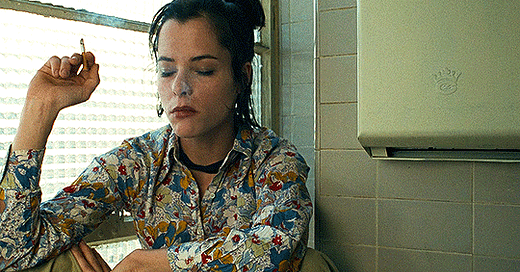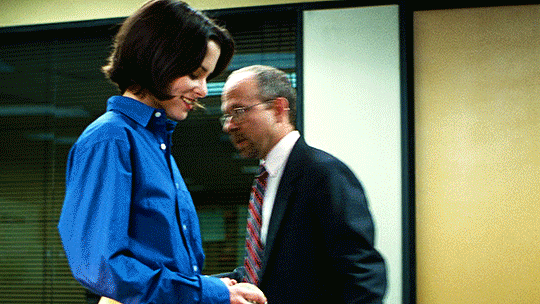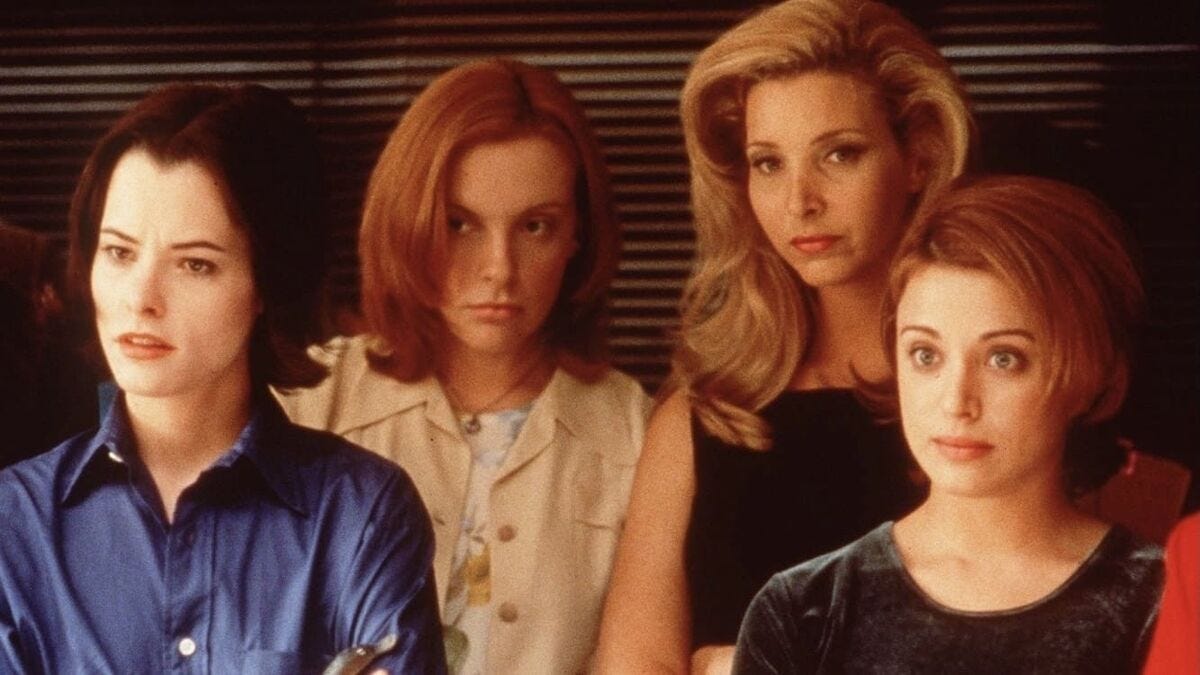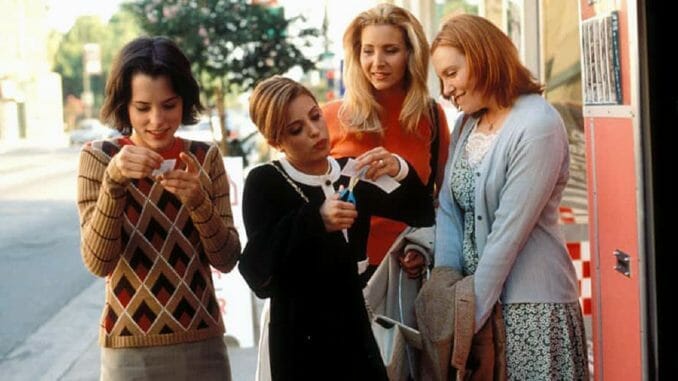Welcome back to The 90-Minute movie - the only Substack1 dedicated to movies with big hearts and short runtimes! I had a sudden boom of visitors last week and I am still trying to figure out why, but let’s keep that energy going. Please subscribe if you haven’t already and send this to a friend who might enjoy it!
As I shared last week, I recently started a new job and this growth has had me reflecting on the past 14 years of my career. (It’s sort of nauseating to say that because I truly have no idea where time went.) I started out as a temp. I still remember answering the scanned Craigslist ad (as in, it was a newspaper clipping scanned and posted) by showing up at a desolate office building near Grand Central Station to take some aptitude tests. I somehow passed (even though I am pretty certain that was the first day I had ever used Excel) and started work. I did not get murdered while answering the creepy ad. Temping is weird business. And nothing captures it better than Clockwatchers (1997, 96 minutes).
Chances are pretty high that you’ve never heard of this movie, let alone seen it, but now is your chance! It is having a bit of a mini-resurgence thanks to actor John Early who has credited the film as his source of encouragement to act, and who has hosted screenings at theaters like Metrograph. This is likely how I came across Clockwatchers - it’s in the zeitgeist - and I recently watched it for the first time and was so pleased. Now I see why Early fights so hard for it.
Clockwatchers is the daughter of 9-to-5 and the underpaid assistant to Office Space. Timid Iris (Toni Collette) is hired as a temporary worker for Global Credit, where she does monotonous work in a bleak setting. There she meets the fiery Margaret (Parker Posey), self-conscious Jane (Alanna Ubach), and wannabe actress Paula (Lisa Kudrow). The women form a bond that is quickly put to the test when office supplies begin to go missing and they, as temporary workers, are placed under extreme supervision. All four women have different visions for their future but all four must face certain realities and limitations.
I already know what you’re thinking -- THAT CAST! And you’re right. The assembly of this cast is like plucking the tomatoes off the vine the moment they turn red. Most of them were just on the cusp of mega fame (the odd woman out is Alanna Ubach who has never really received her flowers but has been steadily working for decades. Most recently you would know her from Euphoria). Written by two sisters Jill and Karen Sprecher and directed by Jill, Clockwatchers was made on a baby budget of $2 million and only made roughly a quarter of that in theaters.
Melissa Anderson speculates in her article on 4columns that this is because the ending of the film is quite bleak. She compares Clockwatchers to its predecessor 9-to-5 in which the women find a way to fight against their patriarchal workplace. Whereas Iris, Margaret, and Paula resign themselves to their realities. There is a poignant moment when Iris manages to get Margaret her long-desired recommendation letter-- so that she may obtain a coveted full-time position-- but even that feels tinged with resignation. Clockwatchers is not a #girlboss movie where women lean in to get further in their careers. Instead, it is more like reality. They’re accused of theft, subject to sexual harassment, and underappreciated. Ebert says it best in his review, “Most new movies are about old movies; this one is about the way we live now.” (This is a rare moment where he and I agree.)
Clockwatchers captures what I can only call the “trauma-bonding” of female friendships at work. Even if outside of the office you and your coworkers have nothing in common, the painful experience of being a woman at work drives you together whether you like it or not. For Iris, Margaret, Jane and Paula, they’re driven together by their temporary status, a caste so low that the women with permanent roles dare not to mix with them. And especially not after office supplies go missing and the temps become targets of intense company scrutiny.
That’s another thing I love about this movie. It captures the microcosm of inane American office culture via stolen office supplies. The inconsequential becomes major inside those very, very drab walls. Anyone who has spent time inside a generic office setting knows exactly what I mean. These are the moments you gossip wildly with colleagues but then, when you try to translate the story to a friend or partner, it’s like trying to describe a dream. There’s too much context needed to get the story right. Clockwatchers invites us into the dream and acknowledges that some of us are going to live in that dream for the next 50 years of our lives.
I don’t find the movie depressing as some may - even with all its harsh realities. Office Space ends cheerfully with the guys escaping any consequences and Peter taking up construction work, now free from his cubicle prison. It’s an optimistic ending, one that believes we can find happiness outside of the grind. Whereas Clockwatchers acknowledges that some of us are just going to have to work, and likely work hard, at something that’s not all that thrilling. But I do see a glint of hope in the relationships the women build, even if they’re separated at the end. It is a nod to how women who work together can lift one another up, rather than fight for the only spot men insist is our only chance at equality.
That I know of…








Once again I enjoyed your writing, and I am looking forward to viewing this movie tonight